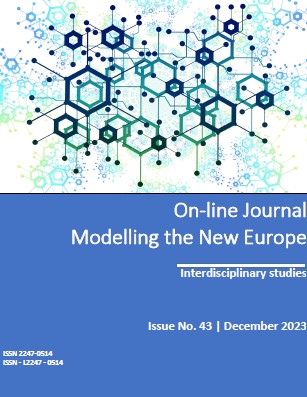EU PROJECTS IN THE FIELD OF SECURITY AND DEFENSE: CHALLENGES AND PROSPECTS OF IMPLEMENTATION
EU PROJECTS IN THE FIELD OF SECURITY AND DEFENSE: CHALLENGES AND PROSPECTS OF IMPLEMENTATION
Author(s): Olha Ivasechko, Oleh Tsebenko, Yaryna Turchyn, Khrystyna IVANYSHYNSubject(s): Security and defense, Military policy, EU-Accession / EU-DEvelopment, Peace and Conflict Studies, Russian Aggression against Ukraine
Published by: Facultatea de Studii Europene -Universitatea Babeş-Bolyai
Keywords: EU defense strategy; Strategic Compass; Russian-Ukrainian war; PESCO;
Summary/Abstract: The article dwells upon the problems of implementing the EU defense strategy, taking into account the leading European concept, strategic documents and the current initiatives in the EU security and defense sector. It was proved that due to the divergent views of the EU member states, there exist the following interpretations of the leading defense concept, namely: 1) “strategic autonomy / sovereignty” (France, Germany, Spain, Italy) considers independence in decision-making, increased integration and generating of finances and resources; 2) “strategic responsibility” (Netherlands, Finland, Estonia) is about greater collective contribution to the regional security system, which provides for a balance of interests in the EU-NATO-USA partnership; 3) “open strategic autonomy” (Poland, Slovakia, Hungary, Lithuania, Latvia) deals with preservation of power only in priority areas of EU activity. The peculiarities of the transformations of the EU defense strategy were identified, and the following three EU strategic documents were analyzed, i. e., the European Security Strategy of 2003, the EU Global Strategy of 2016, and the EU Strategic Compass of 2022. It was determined that the Strategic Compass should introduce consistency in the rules, the management structure of the defense initiatives, clarify the boundaries between ambition and pragmatism, and integrate the defense sector. The strengths and weaknesses of the defense initiatives both within the framework of EU treaties (PESCO, CARD, EDF) and outside them (EI2) were pinpointed. The set of shortcomings detected in the abovementioned defense initiatives were outlined. The priority scenarios are represented. It has been predicted that by 2030, under the conditions of preserving the ambition of “strategic autonomy”, it is necessary to take a set of the following measures: 1) to define a single vision of their cooperation; 2) to find out the structure of the defense cooperation within the framework of EU treaties (PESCO) or outside the EU (EI2); 3) to clarify the rules of the defense sector management and a special body for decision-making.
Journal: Online Journal Modelling the New Europe
- Issue Year: 2023
- Issue No: 43
- Page Range: 67-101
- Page Count: 35
- Language: English

